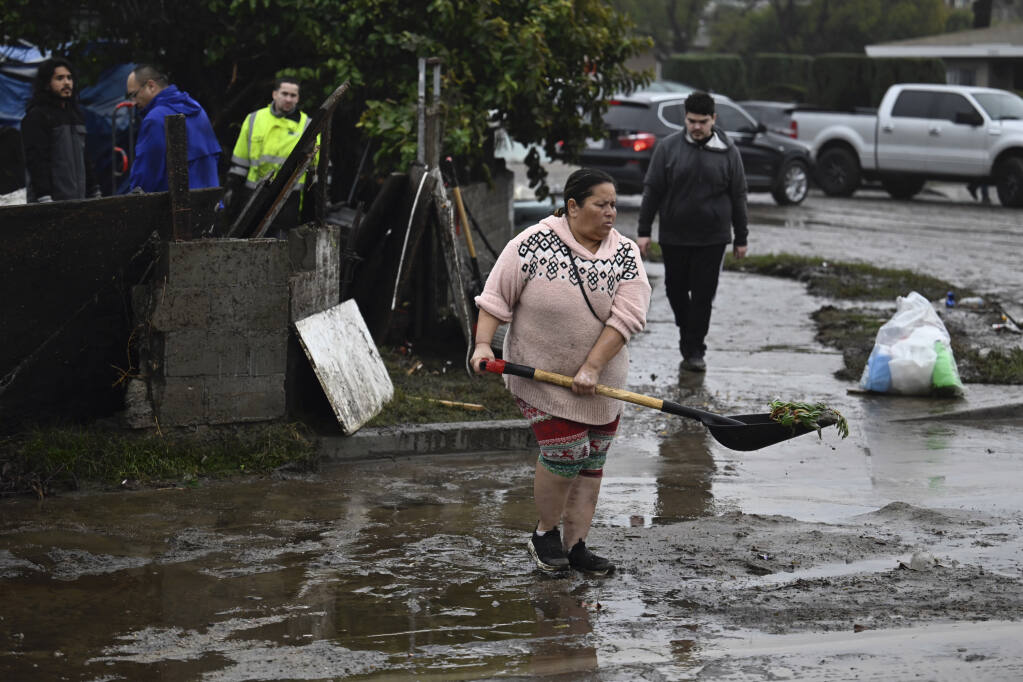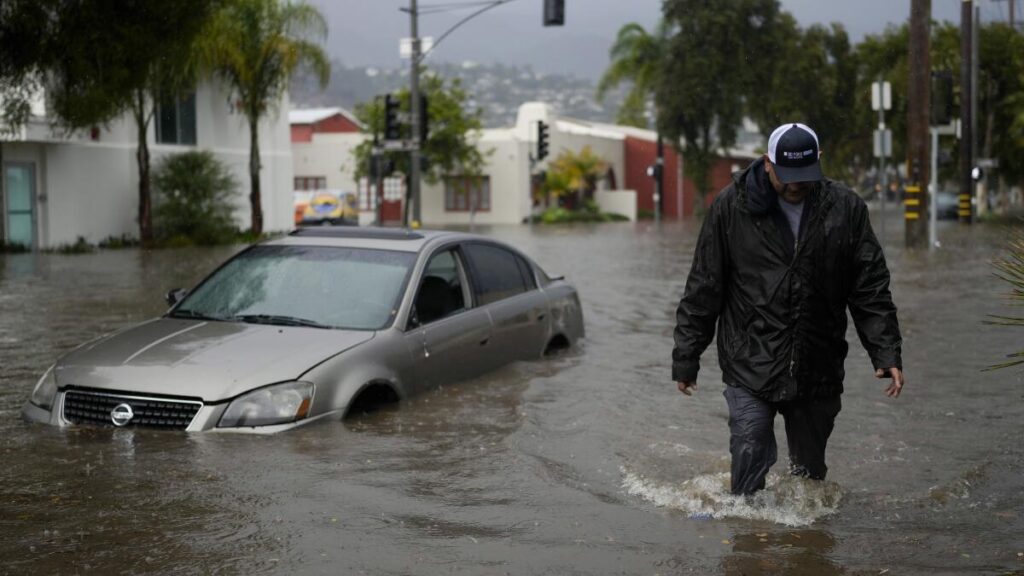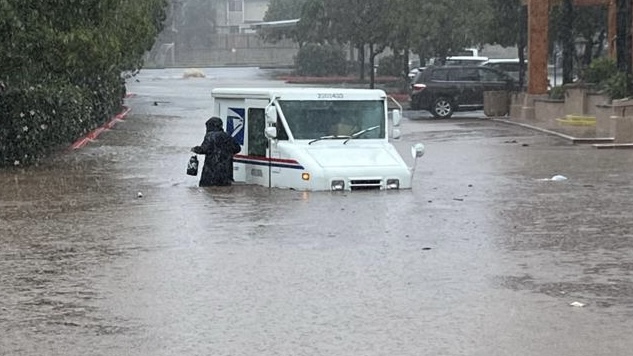In another sign that the effects of climate change are intensifying, last week the city of San Diego and its outlying areas were devastated by intense rainstorms and flash flooding that brought billions of gallons of water to the region in a matter of hours, inundating homes and turning roadways into rivers as the city’s aging stormwater infrastructure was completely overwhelmed. Showering more than a month’s worth of rain in under six hours, meteorologists report this was the wettest January day in the region since 1850. And while the floods have receded, San Diego is not out of the woods yet as two major Pacific storm systems will reach Southern California later this week.
Minority communities in San Diego were disproportionately affected by the floods that occurred within its borders, as the city’s complex history of housing discrimination restricted Black, Asian, Latino, and Jewish families from moving to the outlying suburbs until the housing covenants enforcing these policies were struck down by the SCOTUS in 1948. The city’s aging wastewater infrastructure, coupled with long term trends of low rates of flood insurance coverage in low-income communities, has left homes where families have lived for generations completely destroyed. Data from FEMA and the First Street Foundation shows that in the nation’s 95 poorest counties, only 5% of properties with an 80% or better chance of major flooding have flood insurance.

The First Street Foundation additionally reports that storms causing major damage are now occurring at a rate three times the historical average. From 1980 to 2009, the U.S. saw a major flooding event every nineteen months; from 2010 to 2024, a major flooding event is occurring every six months. Four such events were recorded in 2023. They also note that “rare” flood events like the one in San Diego have increased by a factor of twelve, with so-called “1 in 100 year” floods occurring every eight years.
As noted above, complexities around insurance policies and lack of knowledge of options available for those living in flood-prone areas can have devastating consequences for low-income families and communities of color. A 2022 survey conducted by the Federal National Mortgage Association (also known as Fannie Mae–I hear my fellow student loan borrowers groaning!) found the following in a survey of 3500 respondents:
- Awareness of flood risk and flood insurance remains low
- Awareness of FEMA’s flood insurance program and other private insurance programs is low
- Information about flood zone properties is not always communicated during a sale
The survey also found that members of minority communities were less frequently informed about the flood-prone status of a property, and were less frequently provided information about flood insurance by realtors and mortgage companies.
Beyond the devastating financial effects of losing a home to an actual flood event, the effect of significant populations fleeing persistently flood-prone regions that have become known as “climate abandonment areas” is well documented; in the first two decades of this century, seven million people either avoided or abandoned places with significant flood risks.
In addition to issues directly related to climate change, environmental racism has historically impacted minority communities and continues to do so today. Take for instance the recent history of Shiloh, a predominantly African-American rural community outside Elba, Alabama that has recently become severely flood-prone due to a highway expansion and elevation project that was completed five years ago. Now, Black residents of Shiloh whose families have lived in their homes for generations face significant flooding from the highway runoff each time the area is impacted by significant storms that quickly overflow inadequate retention ponds. Environmental justice advocate Dr. Robert Bullard refers to Shiloh as one of the top five worst construction projects that have created environmental injustice.
Despite altering the construction significantly due to flood conditions, the Alabama Department of Transportation downplayed potential adverse impacts, offering residents with properties adjacent to Highway 84 just $5000 per household to mitigate future flood-related expenses without clarifying that accepting the funds indemnified ALDOT from any future claims. Investigation into these issues has ultimately led to a federal civil rights investigation on behalf of the residents of Shiloh.
As the world’s most extreme weather continues to increase in terms of both frequency and intensity, and as dramatic climate changes occur in heavily populated areas of our country, we must call on our leaders to simultaneously address the simultaneous complex challenges of climate change, of correcting environmental racism and injustice, and preparing for significant climate migration in the decades ahead.

How do issues around climate justice impact the community or region where you live? Will climate issues be among your top priorities for this fall’s general election? Share your thoughts below in the comments! And send a good thought to the people of San Diego, “America’s Finest City,” as they prepare for yet another round of potentially historic flooding in the days ahead.
Join the RadLove movement and help us redefine what is possible.
Sign up for our newsletter and follow us on instagram and spoutible!











